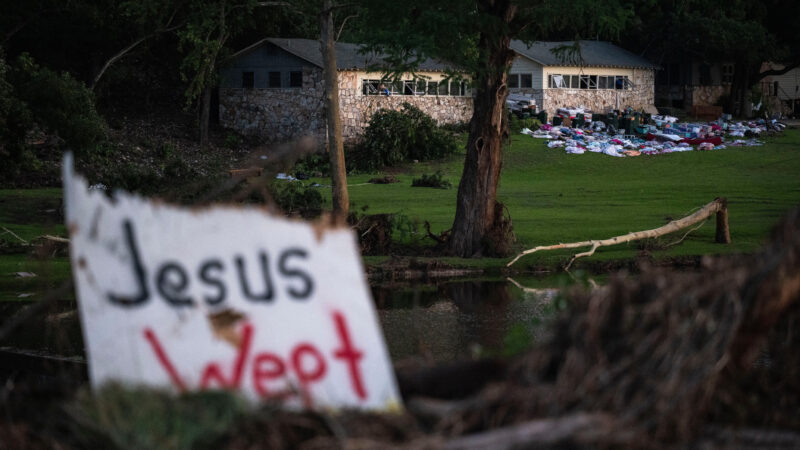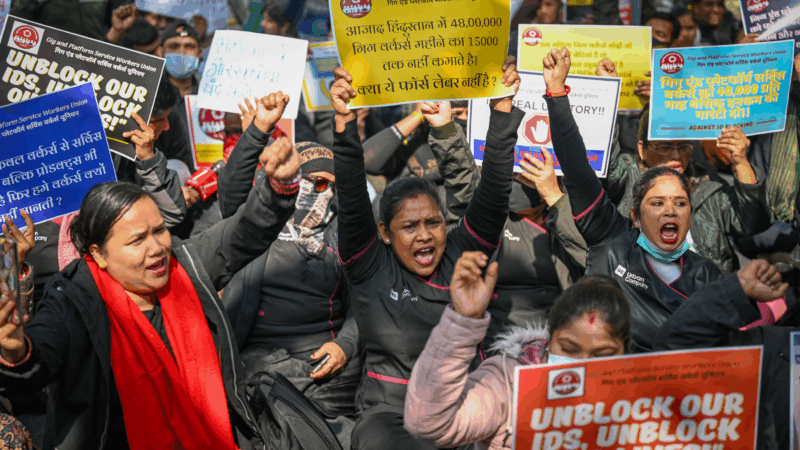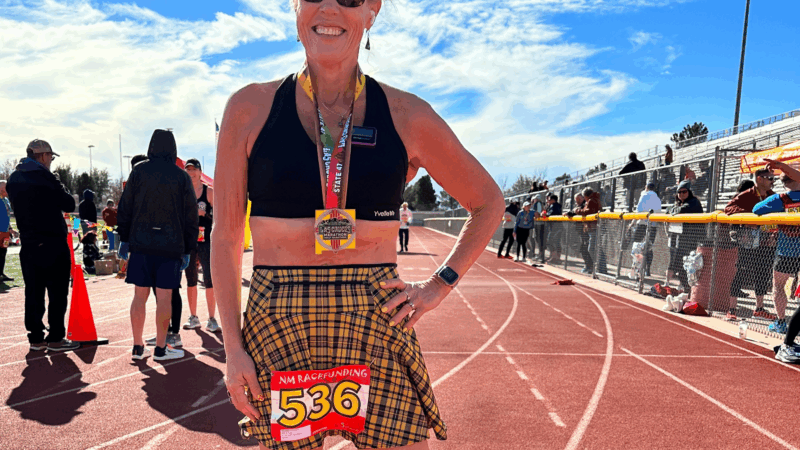Supreme Court Weighs Future Of Voting Rights Act
Race is front and center at the U.S. Supreme Court today and so is Shelby County, Alabama. The county is suing the U.S. Justice Department, challenging a requirement that it get prior approval from the federal government to change voting laws or maps. Civil rights pioneer and Democratic Representative John Lewis of Georgia says the case is one of the most important in a generation. He says the so-called “pre-clearance provision” prevents the disenfranchisement of minority voters. He cites the case of a black city councilman in Calera, AL, who risked losing his seat because of redistricting.
But Shelby County’s long-time attorney, Frank “Butch” Ellis, tells NPR’s Nina Totenberg that “the South has changed.” He notes that in a county that is 90 percent white, there have been multiple elections in which black candidates defeated white candidates.
“In any race, you show where you had a minority candidate happen to lose, I can show you two where they won with a 90 percent white population.”
Listen to Totenberg’s full report here and hear longtime Alabama resident and NPR reporter Debbie Elliot’s story on the issue here.
Regular WBHM contributor, Birmingham News political reporter Kyle Whitmire, also has a story on the legal case here, including a comment from former Rep. Artur Davis, who says the Voting Rights Act has had the unintended consequence of quarantining African-Americans into gerrymandered voting districts.
UPDATE (12:42 pm CT) – The New York Times is reporting that the conservative justices on the Supreme Court voiced skepticism of the Voting Rights Act during oral arguments this morning. Read more in the Times’ coverage.
Camp Mystic parents from Alabama seek stronger camp regulations
Sarah Marsh of Birmingham, Ala. was one of 27 Camp Mystic campers and counselors swept to their deaths when floodwaters engulfed cabins at the Texas camp on July 4, 2025. Sarah’s parents are urging lawmakers in Alabama and elsewhere to tighten regulations.
Court rebuffs plea from domestic workers for better pay and respect
They're often paid low wages and lack job protections. A petition to the country's supreme court to support their demands did not see success — and they are protesting.
Spy agency says Kim Jong Un’s daughter is close to be North Korea’s future leader
Seoul's assessment comes as North Korea is preparing to hold its biggest political conference later this month, where Kim is expected to outline his major policy goals for the next five years.
Using GLP-1s to maintain a normal weight? There are benefits and risks
Drugs like Zepbound and Wegovy are intended for people who are overweight. Some patients are using them after bariatric surgery to keep pounds from creeping back. Others may just want to lose a few pounds.
Jordan Stolz opens his bid for 4 golds by winning the 1,000 meters in speedskating
Stolz received his gold for winning the men's 1,000 meters at the Milan Cortina Games in an Olympic-record time thanks to a blistering closing stretch. Now Stolz will hope to add to his collection of trophies.
How the FBI might have gotten inaccessible camera footage from Nancy Guthrie’s house
Last week, law enforcement said video footage from Nancy Guthrie's doorbell camera was overwritten. But the FBI has since released footage as Guthrie still has not been found.







